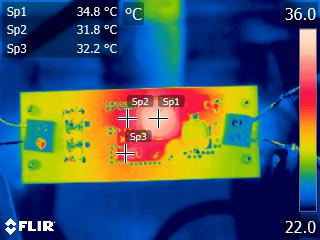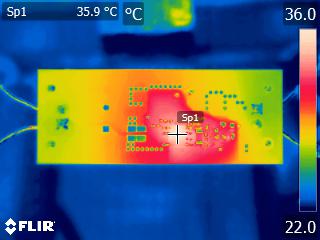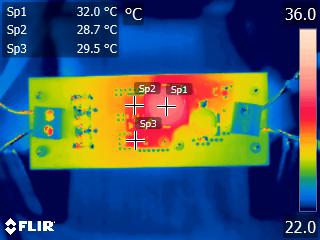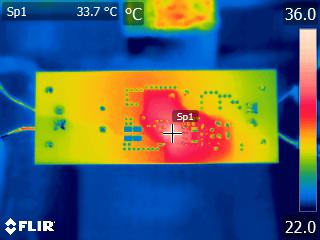TIDT193 August 2020 – MONTH
2.1 Thermal Images
This thermal image shows the operating temperature of the top side of the board with 100 VDC input and 14 V at 130-mA output at room temperature and no air flow.
 Figure 2-1 Top-Side Thermal Image, 100-VDC Input, 14 V at 130-mA Output
Figure 2-1 Top-Side Thermal Image, 100-VDC Input, 14 V at 130-mA OutputThis thermal image shows the operating temperature of the bottom side of the board with 100-VDC input and 14 V at 130-mA output at room temperature and no air flow.
 Figure 2-2 Bottom-Side Thermal Image, 100 VDC Input, 14 V at 130-mA Output.
Figure 2-2 Bottom-Side Thermal Image, 100 VDC Input, 14 V at 130-mA Output. This thermal image shows the operating temperature of the top side of the board with 30-VDC input and 14 V at 130-mA output at room temperature and no air flow.
 Figure 2-3 Top-Side Thermal Image, 30-VDC Input, 14 V at 130-mA Output.
Figure 2-3 Top-Side Thermal Image, 30-VDC Input, 14 V at 130-mA Output.  Figure 2-4 Bottom-Side Thermal Image, 30 VDC Input, 14 V at 130-mA Output.
Figure 2-4 Bottom-Side Thermal Image, 30 VDC Input, 14 V at 130-mA Output.